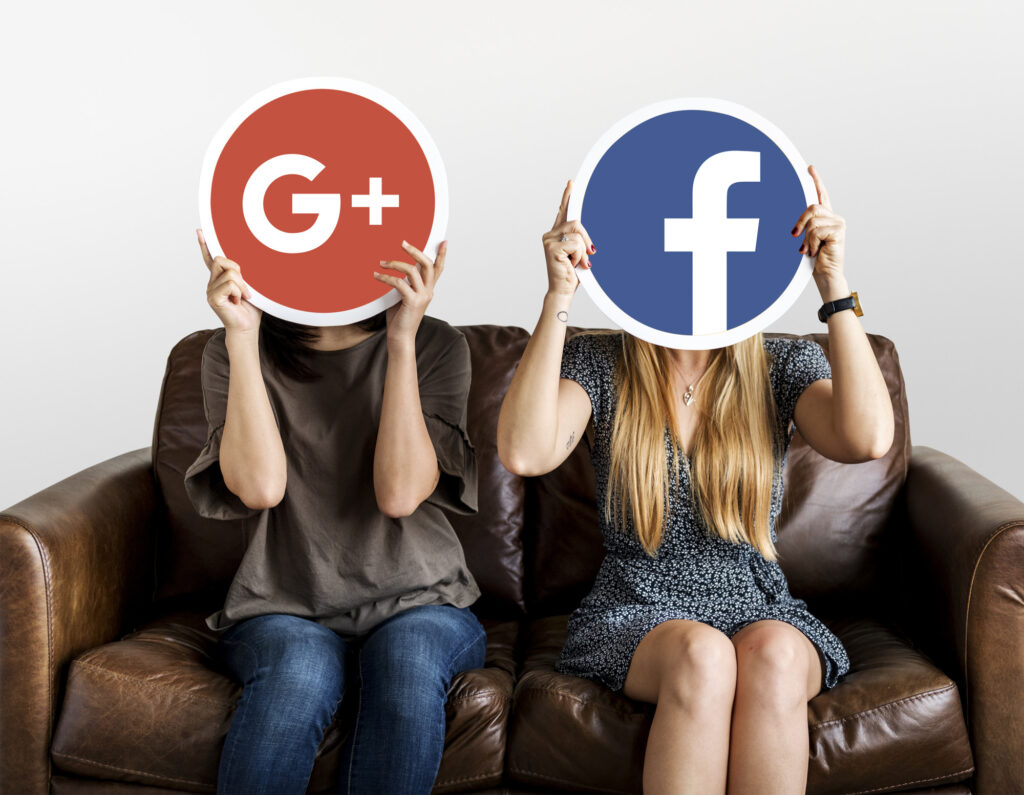Introduction
Deciding between Google Ads and Facebook Ads requires understanding their unique strengths and how they align with your marketing goals. As two of the most popular PPC platforms, they offer unique opportunities for businesses to connect with their audience. Whether you prioritize search intent or audience engagement, this PPC platform comparison will help you determine the best PPC platform for your marketing goals. In this guide, we’ll break down the key differences, benefits, and strategies for leveraging these platforms effectively. Let’s dive in to discover which platform aligns best with your needs!
In PPC advertising, Google Ads and Facebook Ads emerge as the top two platforms dominating the digital marketing landscape. Each offers unique advantages, making the decision between the two crucial for businesses aiming to maximize their marketing ROI. While Google Ads leverages search intent to deliver immediate results, Facebook Ads excels in interest-based targeting and audience engagement. This guide will help you understand the differences between these platforms and determine which one is right for your business.
Google Ads vs. Facebook Ads: Key Factors to Consider

When comparing Google Ads vs. Facebook Ads, it’s important to consider your business objectives and target audience. Google Ads excels in reaching users with high purchase intent through search-based targeting, making it ideal for businesses looking for immediate conversions. On the other hand, Facebook Ads thrive on building brand awareness and engaging users based on their interests and behaviors, making it perfect for businesses that want to nurture leads or showcase visually appealing products.
Choosing the right platform depends on aligning your marketing strategy with the strengths of each platform.
Google Ads vs. Facebook Ads: An Overview
What Are Google Ads?
Google Ads is a pay-per-click platform where businesses can create ads that appear on search engine results pages (SERPs), websites, and apps. Google’s offerings include:
- Search Ads: Ads focused on text, designed to reach users actively looking for particular products or services.
- Display Ads: Visual ads appearing across Google’s Display Network.
- Shopping Ads: Ads centered on products, showcasing visuals, pricing details, and direct links for easy access.
Strengths of Google Ads:
- Targets users with high purchase intent.
- Wide-ranging exposure via the Google Search and Display Network.
- Works well for industries like retail, healthcare, and home services.
What Are Facebook Ads?
Facebook Ads operate seamlessly within the Facebook ecosystem, extending to platforms such as Instagram, Messenger, and the Audience Network. Businesses can create visually appealing ads tailored to specific demographics and interests. Common formats include:
- Image and Video Ads: Perfect for storytelling.
- Carousel Ads: Showcase multiple products or features.
- Story Ads: Engaging ads optimized for mobile.
Strengths of Facebook Ads:
- Powerful audience segmentation.
- Excellent for creating brand awareness and engagement.
- Works well for lifestyle, fashion, and entertainment brands.
Key Differences Between Google Ads and Facebook Ads
Advertising Objectives
Google Ads focuses on intent-based targeting, capturing users already searching for solutions. For example, a user searching for “best running shoes” is typically close to making a purchasing decision.
Facebook Ads use interest-based targeting to connect with users by analyzing their behaviors and preferences. This makes it ideal for generating interest in products or services people might not yet be seeking.
Audience Targeting Options
- Google Ads: Keywords, location, device type, and scheduling. It excels in narrowing down searchers who are ready to act.
- Facebook Ads: Demographics, interests, behaviors, and custom/lookalike audiences. Such precise targeting enables businesses to effectively reach niche audiences.
Ad Formats
- Google Ads: Text-heavy formats for Search Ads, plus visual options like Shopping and Display Ads.
- Facebook Ads: Focuses on creative visual storytelling with formats like carousel and video ads.
Cost and ROI
On average, Google Ads’ CPC is higher because it targets high-intent users. Industries like legal, finance, and medical often see greater costs.
Facebook Ads generally have a lower CPC, but ROI depends on compelling creatives and engagement. For example, fashion brands often thrive on Facebook due to its visual appeal.
Analytics and Optimization
- Google Ads: Offers advanced metrics like Quality Score and detailed keyword performance reports.
- Facebook Ads: Excels in engagement tracking and retargeting capabilities, allowing businesses to refine their audience.
Choosing the Right Platform for Your Business
When to Choose Google Ads
- When your audience is actively seeking the product or service you offer.
- For industries like healthcare, plumbing, or legal services where search intent is critical.
- To achieve quick results and drive conversions.
When to Choose Facebook Ads
- When your objective is to build brand awareness and foster meaningful connections with your audience.
- For businesses in creative industries like fashion, fitness, or home décor.
- To nurture leads over time through engaging content.
Integrating Google Ads and Facebook Ads
The best strategy for many businesses is combining both platforms. For example:
- Leverage Google Ads to reach high-intent users and achieve quick conversions.
- Use Facebook Ads for retargeting and building awareness among those who haven’t made a purchase yet.
By aligning intent-based and interest-based advertising, businesses can create a comprehensive strategy that maximizes reach and ROI.
Conclusion
Both Google Ads and Facebook Ads offer unique strengths, making them powerful tools for any PPC campaign. Google is perfect for targeting high-intent search traffic, while Facebook shines at fostering audience engagement and enhancing brand awareness. Choosing the right platform depends on your business goals, target audience, and industry. For the best results, consider experimenting with both platforms to discover the perfect mix for your needs. The choice between Google Ads vs.The effectiveness of Facebook Ads hinges on your unique objectives, target audience, and industry focus. Google Ads is best for capturing high-intent traffic and driving quick results, while Facebook Ads excels in building brand loyalty and engaging with audiences over time. To maximize results, consider integrating both platforms into your PPC strategy, leveraging Google’s search intent and Facebook’s interest-driven engagement. Experiment, analyze, and adapt to discover the perfect combination for your business.














